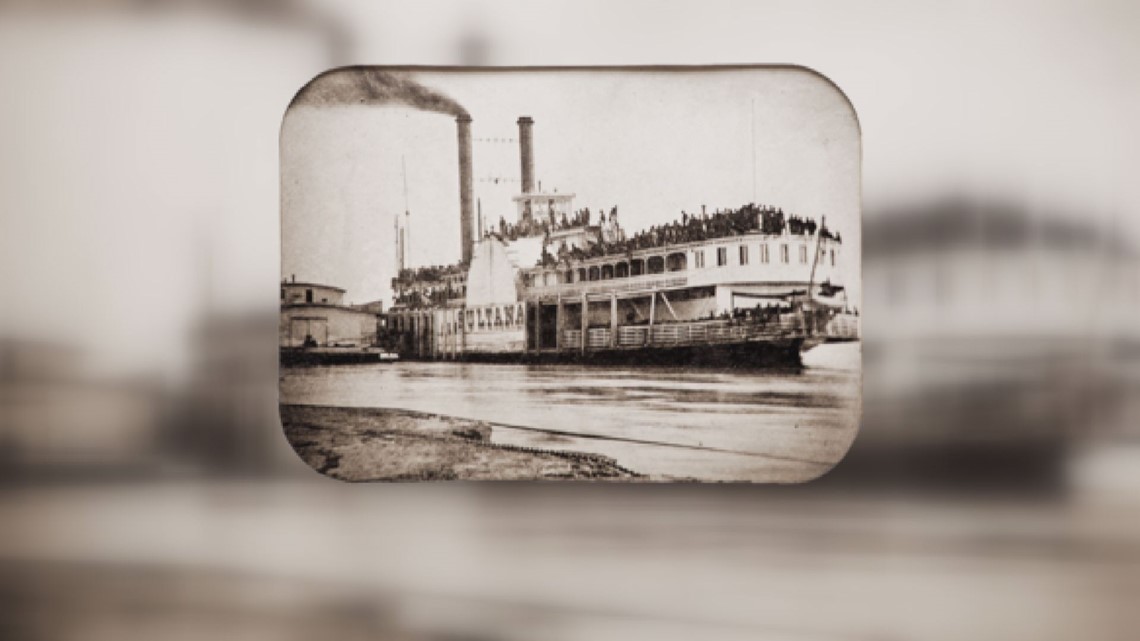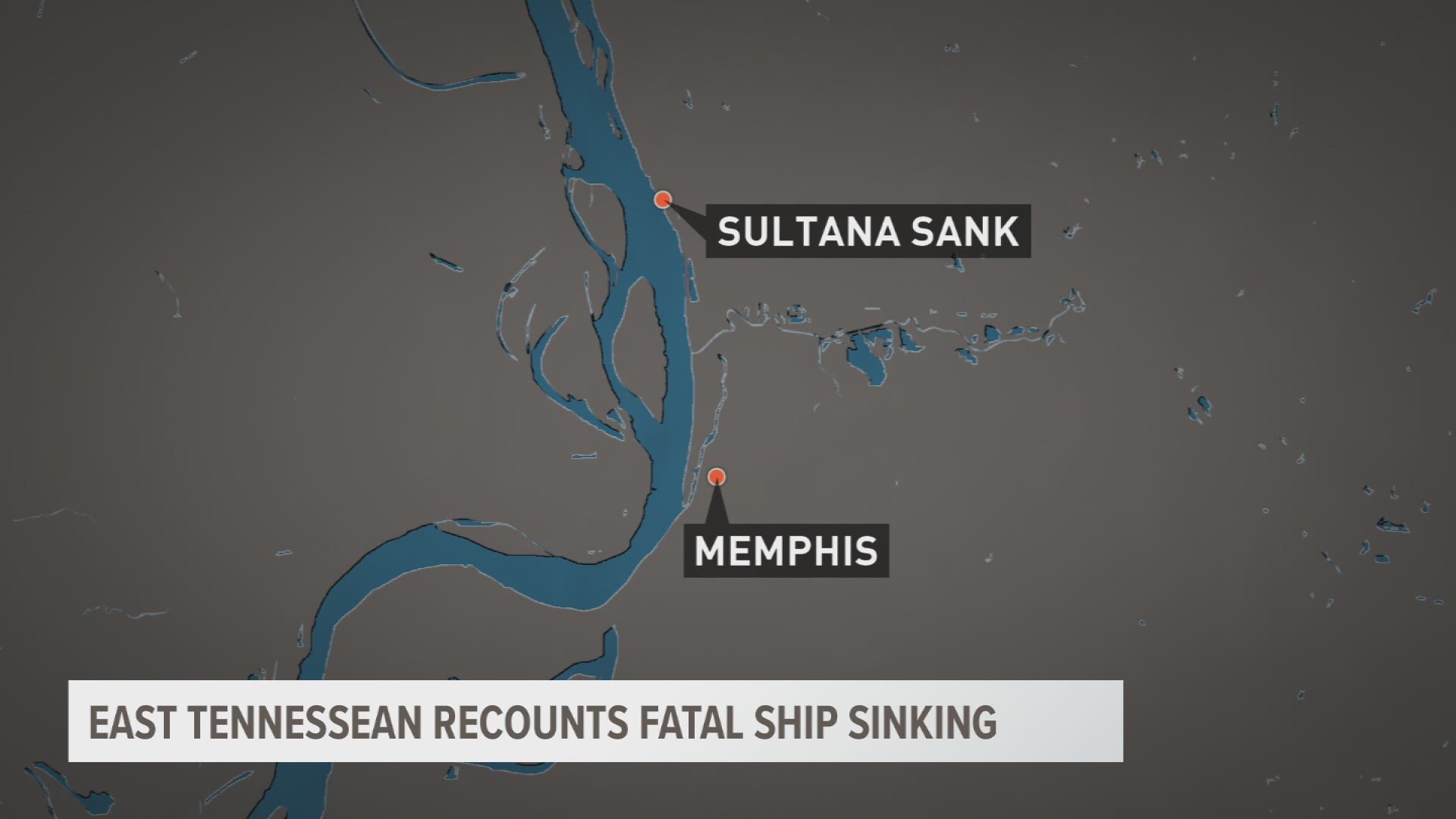The worst maritime disaster in America’s history unfolded on the night of April 27, 1865, on the Mississippi River about seven miles north of Memphis, Tennessee.
“The Sultana was the worst maritime disaster in American history that nobody knows about,” said Norman Shaw, who founded the Sultana Descendants Association.
For more than 30 year they have gathered on this night to pay tribute to the lives lost and the survivors of that steamboat. A memorial at a cemetery near Mount Olive Baptist Church in South Knoxville is among a few homages to the lives lost that fateful night.
The Sultana was overloaded with hundreds of recently freed Union prisoners of war heading from confederate camps home to freedom. A vessel built to carry no more than about 400 passengers and crew was packed with more than 2,000 soldiers.


“They had survived the shot and shell of the Civil War, the horrors of prison camp, and are actually on this steamboat that was a day or two (from port) and exploded in the middle of the night,” recalled Shaw who founded the descendants group to ensure the almost 1,200 men killed on the Sultana aren’t forgotten.
Ties to East Tennessee run deep on the Sultana. Almost 400 soldiers from a unit based in Knoxville were aboard. That included 17-year-old John Simpson, who was asleep on the third deck and awoke in mid-flight after the boilers on the ship exploded at two in the morning.
“…didn’t kill him but just sent him airborne so he woke up mid-air and splashed down away from the boat, which probably saved his life because he was able to grab some driftwood and float to safety,” Shaw said.


He suggests the reason the story is often overlooked centers on the timing. It occurred about a week after President Abraham Lincoln was assassinated. His killer, John Wilkes Booth, was himself shot the day before the Sultana sank.
In addition, Shaw says after years of bloodshed, readers had grown tired of seeing stories about the Civil War. The Sultana tragedy slipped off the front pages and largely shelved as only a mention in history books.
“The purposes of the survivors was to keep the story alive. They made a promise to each other to keep the story alive," Shaw said. "Now they are gone, our goal is to not let the story be forgotten."

